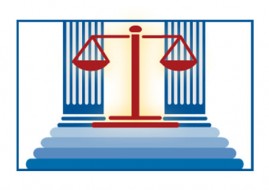Alleging Fraud in Withholding Knowledge of Malpractice
By Lazar Emanuel [Originally published in NYPRR ]
Plaintiff Ferdinand sued lawyers Crecca & Blair on account of their services in connection with a landlord/tenant action which resulted in Plaintiff’s eviction from the contested premises. In her complaint, Plaintiff set forth nine causes of action. Two of these were withdrawn voluntarily. Two of the remaining causes alleged fraud by the defendants consisting of “failure of Crecca and Blair to mention to plaintiff that they permitted the stay of eviction to lapse in the District Court [landlord/tenant] action…” and fraudulently deceiving plaintiff by “failing to advise plaintiff that they allowed the stay to lapse in the District Court action.”
In Ferdinand v. Crecca & Blair, NYLJ, 12/30/2002, Suffolk County Supreme Court Judge Robert W. Doyle held that allegations of fraud in the concealment of malpractice do not support a cause of action distinct from the malpractice itself. “An attorney’s failure to disclose a malpractice does not give rise to claims for fraud and deceit separate from the underlying malpractice cause of action [Weiss v. Manfredi, 616 N.Y.S.2d 325, 83 NY2d 974]. Nondisclosure or concealment of malpractice may affect damages recoverable, but, standing alone, such nondisclosure or concealment will not serve as a basis for a distinct cause of action in fraud.”
Lazar Emanuel is the Publisher of NYPRR.
DISCLAIMER: This article provides general coverage of its subject area and is presented to the reader for informational purposes only with the understanding that the laws governing legal ethics and professional responsibility are always changing. The information in this article is not a substitute for legal advice and may not be suitable in a particular situation. Consult your attorney for legal advice. New York Legal Ethics Reporter provides this article with the understanding that neither New York Legal Ethics Reporter LLC, nor Frankfurt Kurnit Klein & Selz, nor Hofstra University, nor their representatives, nor any of the authors are engaged herein in rendering legal advice. New York Legal Ethics Reporter LLC, Frankfurt Kurnit Klein & Selz, Hofstra University, their representatives, and the authors shall not be liable for any damages resulting from any error, inaccuracy, or omission.
Related Posts
« N.Y. Courts Adopt Committee Suggestions on Fiduciaries Counsel’s Prevention of Defendant’s Testimony Is Ineffective Assistance »













